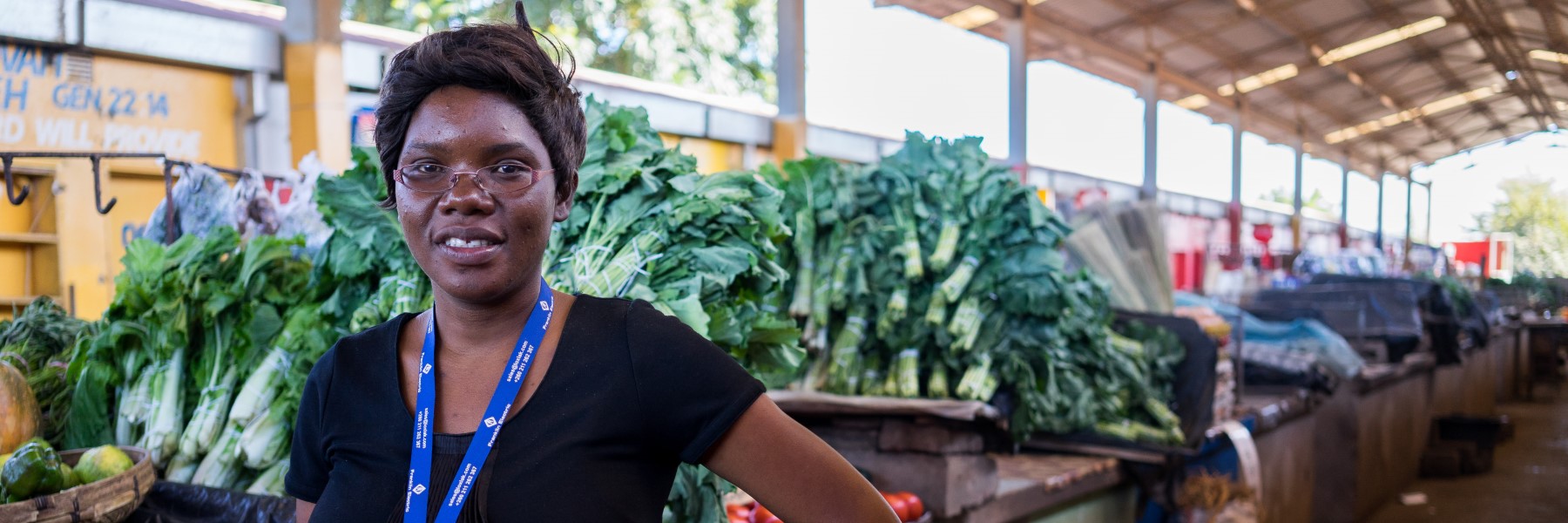
Zambia
THET has been working in Zambia since 2009 to address the most urgent health needs.


Lack of useable medical equipment
In Zambia, there is a lack of functioning medical equipment. As a result, healthcare workers on the front lines of service delivery lack the equipment they require to diagnose, monitor and treat patients.
This is due in large part to a lack of human resources and limited training for equipment users and maintenance personnel. To help address this, THET worked in partnership with the Northern Technical College to develop the first training course for Biomedical Engineering Technologists (BMETs) in Zambia. We also provide technical assistance to the Ministry of Health.
Up to
50%
of medical equipment is out of service.
Chronic Malnutrition
Chronic malnutrition is a significant challenge in Zambia. The country is also experiencing a rise in obesity, diabetes and cancer. However, the health workforce is critically short of nutritionists and dieticians.
In response to this challenge, THET initiated the country’s first training programme for nutritionists in partnership with the University of Zambia, helping to design and deliver BSc and MSc courses at the University.
in children under five
45%
suffer from chronic malnutrition in zambia
Surgical Care
In Zambia, 80.7% of the population (11,704,700 people) live more than two hours from a surgical facility. As a result, many common, easily treatable conditions become fatal, such as obstructed labour, appendicitis, road traffic injuries, burns and falls.
With only 0.93 anaesthesia providers per 100,000 people, compared to 20.7 per 100,000 in the UK, the anaesthesia specialty is under-developed and under-resourced in Zambia. THET has been working with the Ministry of Health and the University of Zambia to deliver the first postgraduate training programme for physician anaesthestists.
in low and middle income countries, as many as
9 out of 10
people cannot access basic surgical and anaesthetic care
Projects:
Health Technology Management Improvement Programme
AIM: Since our successful UNICEF-funded pilot project in 2017, we expanded our support for the placement of BioMedical Equipment Technologists (BMETs) in a further eighteen district level hospitals across four provinces to increase the up-time of medical equipment.
The Ministry of Health responded to our advocacy and increased support for BMETs through mentoring and provision of basic toolkits to ensure they are confident in their abilities and are able to undertake their responsibilities on a practical level.
Partners:
- The Ministry of Health
- SIDA
- Gradian Health Systems
Impact: Over the course of eight months, supported BMETs were able, on average, to increase the up-time of medical equipment in their hospitals from 74% to 93%. We expect to see similar, if not better results in this phase of the programme.
In addition to repairing machines, we are also supporting the BMETs to develop inventories and introduce preventative maintenance activities which will lengthen the life span of vital devices and ensure that more patients can receive the treatment they require.
Volunteer Placement Pilot Project
AIM: To gain an improved understanding of the impact of coordination on the implementation and impact of volunteer placements within the Zambian Health System and volunteers who undertake placements.
In 2018, THET conducted a Volunteer Placement Feasibility Study in Zambia which mapped the global health volunteering landscape in Zambia and formulated recommendations around placement design and delivery. Based on the information collected through the study, as well as the desire for overseas volunteers expressed by Zambian partners on the ground, THET developed a pilot project for volunteer placements in 2019 which saw the placement of two pediatricians and a management consultant in two district level hospital.
In 2021, THET offered bursaries to Health Partnerships working in Zambia to place volunteers in provincial and district hospitals.
Partners:
- The Ministry of Health
- Health Education England
- Lusaka Provincial Health Office
Oxygen Systems
Aim: To strengthen medical oxygen systems, operations and maintenance.
Funded by UNICEF, THET implemented a project to strengthen medical oxygen systems operations and maintenance in Zambia. This project was a direct response to the Covid-19 pandemic. The project utilized improvements already made under the THET’s SIDA-funded HTMI Project (2018 – 2021).
As part of the project outcomes, Standard Operating Procedures (SoPs) on the operation and maintenance of Medical Oxygen production and delivery systems, including oxygen plants, cylinders and manifolds, oxygen concentrators, pulse oximeters and other related equipment were developed and approved by the Zambian Ministry of Health.
Additionally, a training package for BMETs and other health staff handling oxygen production and delivery systems was developed.
60 BMETs were also trained on the maintenance of oxygen-related medical equipment in target health facilities.
For further information about THET’s work in Zambia, please contact our Country Director, Muleba Matafwali, Muleba.Matafwali@thet.org
"It’s amazing that once people thought training pathologists in Zambia was impossible, now we are able to see the fruits of our training being brought to the poorest of our people, it is truly humbling. We only hope such partnerships continue."
Dr Francis Musonda - MMed Pathology Student

Previous Projects:
Human Resources for Health:
AIM: Develop relevant, quality, local training programmes for critical health specialty areas.
This includes high level specialist training in areas as diverse as Anaesthesia, Pathology and Psychiatry, as well as developing the first pre-service training programme for medical equipment maintenance professionals.
- The programme responded to critical needs in health service capacity, identified by the Zambian Ministry of Health.
- The programme was funded by DFID/UK Aid.
Partners:
- The Ministry of Health
- The Ministry of Community Development
- Technical Education, Vocational and Entrepreneurial Training Authority (TEVETA)
- University of Zambia’s School of Medicine
- Northern Technical College (NORTEC)
Collaborators included: UNICEF, the Beit Trust, the Society of Anaesthetists of Zambia (SAZ), the Association of Anaesthetists of Great Britain and Northern Ireland (AAGBI), the Harvard Medical School Programme for Global Surgery and Social Change (PGSSC), the University Health Network, Toronto, and the Aga Khan University, Nairobi.
Impact: Development of four new health specialist training programmes in Zambian institutions, three of which are at Masters of Medicine level, training specialist physicians.
- 184 students have entered training with 43 graduating so far.
- The number of practicing specialists in each of the three areas has more than doubled due to the training programmes, and the medical equipment maintenance professionals (Biomedical Engineering Technologists) are the first to be trained in Zambia, and some of the first to be trained in Sub-Saharan Africa.
- The programme has also assisted the development of two national professional bodies representing the interests of health workers.
Nutrition:
AIM: Our Nutrition Programme was implemented between July 2011 and November 2017, in response to Zambia’s urgent need for well-qualified nutritionists and dieticians. The programme’s aim was to train nutritionists and dieticians to reduce chronic malnutrition.
Partners:
- The University of Zambia
- The Ministry of Health
- The Ministry of Community Development, Mother and Child Health
- The National Food and Nutrition Commission
- The Nutrition Association of Zambia
Impact: 29 nutritionists were trained (22 female and 7 male).
71 health care workers including nutritionists, nurses and clinical officers were trained in Quality improvement (QI) in relation to the management of acute malnutrition.
MMed Pathology Placements
AIM: THET is supporting international clinical placements of 2 MMed Pathology students in laboratories in South Africa.
As part of our ongoing work to strengthen the capacity of pathology services in Zambia, this project aims to provide an opportunity for students to develop their skills and gain exposure to a variety of laboratory contexts. This, in turn, will enable them to strengthen the quality of laboratory services available in Zambia.
Partners:
- BDIAP
- ACP
- University Teaching Hospital, Lusaka (UTH)
- University of Zambia, School of Medicine (UNZA, SoM)

